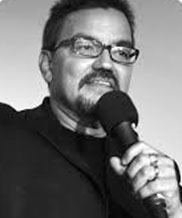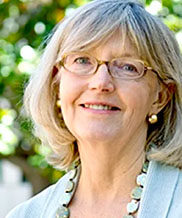Managing the Dynamics of Platforms and Ecosystems
8:00am-11:00am
ZOOM
It is now well understood that to survive and compete in the information-driven, globally connected 21st Century, organizations must acknowledge the speed and resilience of platforms and ecosystems. With the rapid emergence and proliferation of cloud services, artificial intelligence, and 5G, new human-machine relationships are emerging. These hybrid relationships introduce new opportunities and challenges creating and managing platforms and ecosystems. The field now needs taxonomies to describe generalizable concepts, longitudinal perspectives to discover evolutionary patterns, and analyses of dynamics to indicate strategic pathways to action.
The Managing the Dynamics of Platforms and Ecosystems minitrack is a part of the 54th Hawaii International Conference on System Sciences (HICSS) and continues to respond to the evolution of insights needed to manage the dynamics of platforms and ecosystems.
Two keynote presentations set the scene for the session:
8:00am Dr. Jesus Del Valle Rosales: The Network – Pharma Calling
8:30am Dr. Barbara Means: Digital Promise, An Ecosystem for Transforming Learning
Three panel discussions will focus on one of three thematic areas of the accepted submissions:
9:10am Taxonomies as a Shared Language for Platforms and Ecosystems
9:50am Qualitative Case Studies on Pathways to Action
10:30am Data-driven Approaches to Analyze Pathways to Action
Minitrack Co-chairs:
Dr. Jukka Huhtamäki, Postdoctoral Researcher, Tampere University
Dr. Martha Russell, Senior Research Scholar H-STAR and Executive Director, mediaX at Stanford University
Dr. Hannes Rothe, Assistant Professor, Digital Entrepreneurship Hub, Freie Universität Berlin
CLICK HERE on THURSDAY morning for the ZOOM Link. You will be placed in a waiting room and join when the session begins. If you have any issues, please email Jason Wilmot.
Presenters

Jesus del Valle is the Head of Bayer R&D Open Innovation Stranger Things. Originally from Havana, Cuba, he graduated as a Physicist (Diploma / Master) from the Technical University of Dresden, obtained his PhD in Biology at the Max Planck Institute / Free University in Berlin, and has worked in Life Sciences for more than 20 years. At Bayer he started working in IT in R&D and M&S roles, and currently leads the Stranger Things Team at Bayer Pharmaceuticals R&D Open Innovation. He founded the Bayer Grants4Apps / G4A open innovation initiative in 2013, the first pharma accelerator, which has since evolved into a digital health for life sciences accelerator and coworking program with locations in multiple countries. He founded the global STEM4Health community, https://www.meetup.com/pro/stem4health/, now with 15,000+ members, to foster networking between all stakeholders in the healthcare industry. Jesus also co-founded AcceleRed, a Project Maker Team. AcceleRed is among other initiatives co-organizing Hackathons online and have been volunteering as Co-organizers, Mentors, Judges, in different Hackathons, Universities of Yale, Cambridge (UK), MIT, Duke, British Columbia, George Mason, Princeton High School, others. One of his passions is to bring together the startups’ culture and technological knowledge with established companies’ experience. Twitter: https://twitter.com/yeysus. LinkedIn: https://www.linkedin.com/in/yeysus/.

Barbara Means founded the Center for Technology in Learning research group and served as its co-director for many years. Her research examines the effectiveness of innovative education approaches supported by digital technology. Her recent work includes evaluating the implementation and impacts of newly developed adaptive learning software. She is also studying the long-term effects that attending an inclusive STEM-focused high school has for students from underrepresented minorities. A fellow of the American Educational Research Association, Dr. Means has served on many study committees of the National Academies of Science, Engineering, and Medicine, including the one currently producing a companion volume to the classic How People Learn. She has advised the U.S. Department of Education on national education technology plans and authored or edited more than a half dozen books related to learning and technology. Barbara earned her undergraduate degree in psychology from Stanford University and her Ph.D. in educational psychology from the University of California, Berkeley.